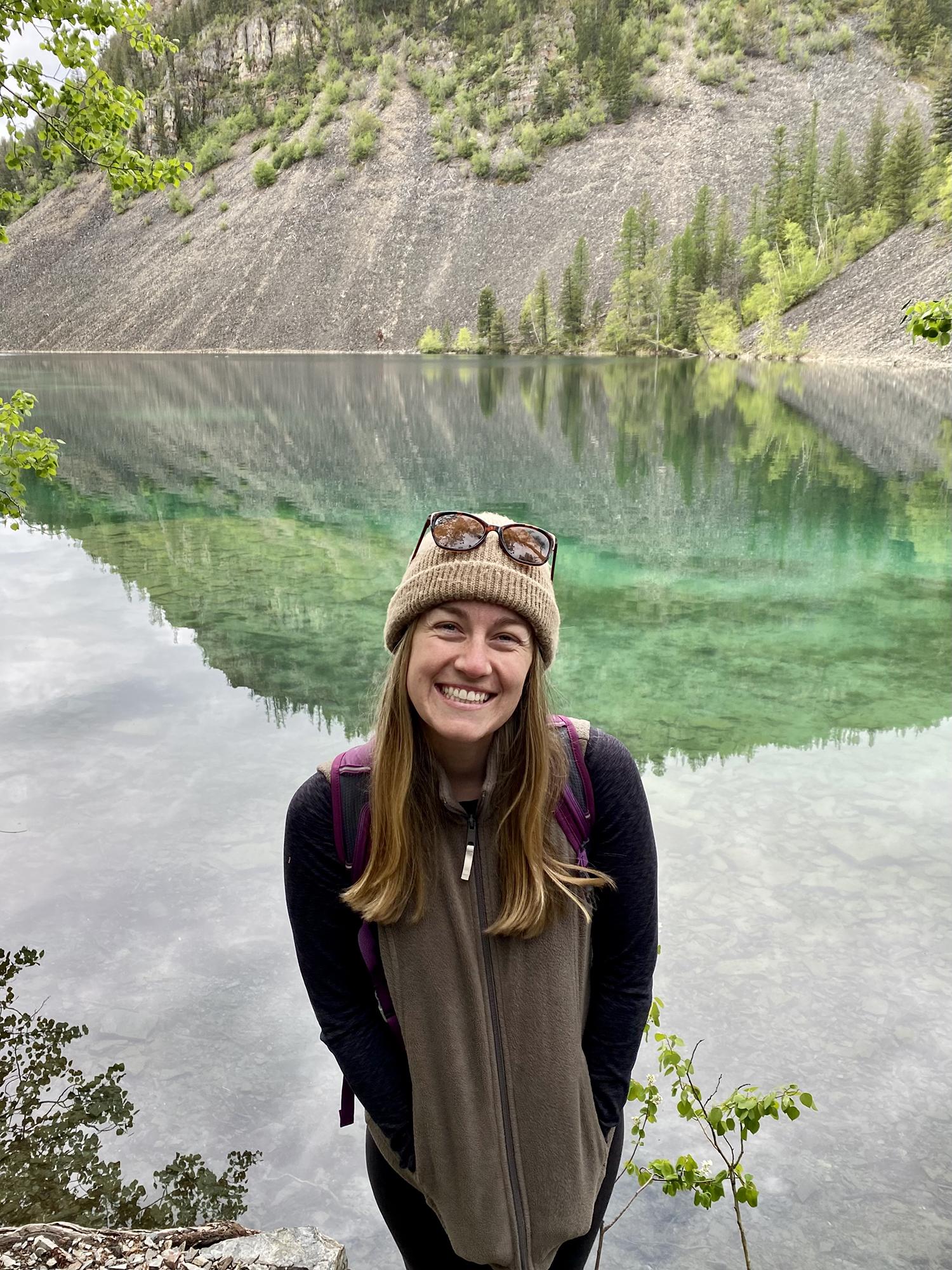
Victoria Read loves being outside in nature.
It’s a place where she feels safe and calm and joyful. She feels strongly about the power of nature when it comes to educating young people and credits her time at Humber for that.
Read graduated from the University of Guelph-Humber’s Early Childhood Studies program, earning an Early Childhood Education diploma from Humber as well as an Honours Bachelor of Applied Science in Early Childhood Studies from the University of Guelph.
The Humber program and in particular, the play and curriculum development courses, taught the importance of outdoor play, both theoretically and experientially. Read was frightened of birds due to a traumatic experience earlier in life, despite her love of the outdoors. However, the courses helped her overcome that fear by having her feed the gentle chickadees that would frequent the Arboretum.
It was during her time in the program that Read was introduced to the idea of Forest School by Professor Louise Zimanyi. Read says a Forest School is a classroom setting where children are outside where they’re building a connection with the land and other children. It’s an opportunity for children to be free and make their own choices outside of a traditional classroom setting.
Zimanyi had co-started a pilot program as a result of the Forest and Nature Practitioner course offered through the Child and Nature Alliance of Canda (CNAC) that had children from the Child Development Centre engaging in free play outdoors in the Arboretum. Read supported Zimanyi on the project and learned a great deal from it.
“I was able to observe another way of children being outdoors while learning and playing on the land,” said Read.
In 2017, Read and two of her peers traveled to Denmark to do a placement at one of that country’s Forest Schools.
“I’m eternally grateful to Louise for noticing that I had a connection to that way of learning and that I was able to experience Forest School,” she continued. “Louise, with all the students she has, took the time to help me grow and that’s really amazing and something I won’t forget.”
It was an incredible experience for the young educator and one that she knew she wanted to pursue in her career. Read has seen children who struggle in an indoor classroom but thrive in a Forest School setting.
“It’s creating a pressure-free space for the kids to be themselves and have agency over what they’re doing,” she said.

Read spent more than two years in Scotland where she worked at an outdoor pre-school and volunteered with one of that country’s Forest Schools. She also would complete CNAC’s Forest and Nature School Practitioners course and now co-hosts the same training including alongside Indigenous Elders and Knowledge Holders from the community.
In September, the Humber Arboretum and Centre for Urban Ecology are hosting the CNAC training in collaboration with members of the Mississaugas of the Credit First Nation.
She’s currently the executive director of Outdoor Connections in British Columbia where they offer preschool and classes for school aged children. Children typically attend a couple days a week and spend 90 per cent of their time outdoors learning skills and forging friendships.
Read credited Humber for opening her eyes to the many different paths her career could take. She enjoyed the smaller-sized classes, the work-integrated learning opportunities and professors who were engaged in her educational success.
“It’s because of Humber and Guelph-Humber that I’m where I am today,” said Read. “I’m so grateful to Humber and especially Louise for exposing me to different ways of teaching and learning and supporting children. “
Find out more by visiting the ECE website.